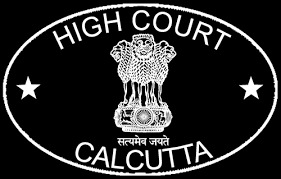Jyotirindra Nath Hore, J.@mdashThese two matters have been heard together and this judgment will govern both.
2. Criminal Revision No. 375 of 1985 arises out of an application u/s 482 of the Criminal Procedure Code for quashing the impugned proceeding being C/2894 of 1983 u/s 220(3) of the Companies Act, 1956, pending before the learned Metropolitan Magistrate, Seventh Court, Calcutta.
3. The petitioner is a director of Clyde Fan Company Private Limited. Shri S.K. Bhattacherjee, the Assistant Registrar of Companies, West Bengal, filed a complaint before the learned Chief Metropolitan Magistrate at Calcutta, alleging, inter alia, that the annual general meeting of the company should have been held in accordance with the provisions of the Companies Act, 1956, on or before June 30, 1983, and the balance-sheet and profit and loss account of the company for the year ending on December 31, 1982, were required to be filed u/s 220(1) of the Companies Act in the office of the complainant on or before July 30, 1983. But, in spite of show-cause notices/default notices issued by the complainant, the said balance-sheet and profit and loss account as on December 31, 1982, have not yet been filed. Accused No. 1 is the company and accused Nos. 2 to 4 are officers of the company who were/are in default and were/are knowingly guilty of the said default in filing the said balance-sheet and profit and loss account. Accused Nos. 1 to 4 are, therefore, liable for punishment u/s 220(3) of the Companies Act, 1956. The petitioner has been made accused No. 2 in the said case.
4. On a perusal of the complaint, cognizance was taken as summons against the petitioners and others u/s 220(3) of the Companies Act, 1956, was issued.
5. Criminal Revision Case No. 376 of 1985 arises out of a similar complaint u/s 220(3) of the Companies Act for non-submission of the balance-sheet and profit and loss account for another period.
6. Mr. Ghosh, learned advocate for the petitioner, has challenged the impugned proceedings against the petitioner on two grounds. Firstly, it has been contended that there is no material in the petition of complaint to show that the petitioner was in overall control of the day-to-day business of the company and was in charge of preparing the balance-sheet and profit and loss account and holding the annual general meeting and in the absence of such averments in the petition of the complaint, the initiation of proceedings and taking of cognizance are bad, illegal, improper and without jurisdiction. It has been contended that there is no material in the petition of complaint to show that the petitioner is an officer of the company as contemplated u/s 220(3) of the Companies Act, and is also in default; and, in the absence of such material, the learned Magistrate has no competence, authority and/or jurisdiction to take cognizance of the case and initiate the proceeding. Secondly, it has been contended that the petitioner could not prepare the balance-sheet and profit and loss account and hold the annual general meeting of the company for consideration of the accounts due to circumstances absolutely beyond the control of the petitioner. It has been alleged that though the petitioner was a director of the company and the petitioner and the other members of his family were the majority shareholders, the petitioner did not get accounts and stock verification statement after transfer of the shares and did not get possession of the factory building and machinery as the workers and the staff had started an agitation in respect of their salaries, bonus and other demands. The petitioner did not get possession of the books of account and other documents of the company and as a result, the petitioner could not prepare any accounts and also the balance-sheet and the profit and loss account and could not comply with the provisions of the Companies Act in the absence of books of account and the documents or the relevant particulars.
7. Mr. Ghosal, learned advocate for opposite party No. 2, the Assistant Registrar of Companies, contended, on the other hand, that there are sufficient averments in the complaint which make out a prima facie case u/s 220(3) of the Companies Act against the petitioner. It has further been contended that the allegations about the circumstances for which the petitioner is alleged to have been unable to prepare the balance-sheet and profit and loss account and submit the same before the authorities are in the nature of defence which is to be proved by the petitioner by adducing evidence as the alleged circumstances are not admitted. The same cannot be taken into consideration at this stage.
8. Under the provisions of Section 220(1) of the Companies Act, 1956, three copies of the balance-sheet and profit and loss account duly placed in the annual general meeting are to be filed with the Registrar of Companies within 30 days of the general meeting and, in case no annual general meeting was held, within 30 days from the last date on which the annual general meeting should have been held in accordance with the provisions of the Act. Sub-section (3) of Section 220 provides that, if default is made in complying with the requirement of Sub-section (1) or (2), the company and every officer of the company who is in default are liable to the like punishment as provided by Section 162 for a default in complying with the provisions of Sections 159, 160 or 161. It is clear, therefore, that the company would be always liable for non-compliance with the requirements of Section 220(1). Apart from the company, every officer of the company who is in default is also liable. The expression "officer who is in default" has been defined in Section 5 as any officer of the company who is knowingly guilty of the default, non-compliance, failure, refusal or contravention mentioned in that provision, or who knowingly and wilfully authorises or permits such a default, nun-compliance, failure, refusal or contravention. In paragraph 6 of the petition of complaint, there is an allegation that accused No. 2 who is the petitioner before me and other accused persons are officers of the company who were in default and who were knowingly guilty of the said default, viz. non-compliance and failure to file the said balance-sheet and profit and loss account. At this stage, the question for consideration is whether the allegations in the petition of complaint, if taken on their face value, make out a prima facie case against the petitioner u/s 220(3) of the Companies Act. There is a specific allegation that the petitioner was knowingly guilty of the said default, viz., non-compliance arid failure to file the balance-sheet and profit and loss account for the disputed period. The petitioner is a director of the company. Any director of the company who is knowingly guilty of the default or who knowingly authorises or permits such a default would be an "officer who is in default" u/s 5 read with Section 2(30). In view of the allegations made in paragraph 6 of the plaint, it cannot be said that no prima facie case has been made out against the petitioner. The details as to how the petitioner was knowingly guilty of the default or knowingly authorised or permitted such a default are matters of evidence.
9. Mr. Ghosh, relying upon a single Bench decision of this court in the case of
10. With regard to the second point urged by Mr. Ghosh, the petitioner''s case is that though the petitioner was a director of the company and the petitioner and other members of his family are the majority shareholders, the petitioner did not get the accounts and stock verification statement after transfer of the shares as adjustment against the loan advanced by the petitioner in favour of the Clyde Fan Company Private Limited and did not get possession of the factory building and machinery as the staff started agitation for their salaries, bonus and other dues. In spite of repeated reminders the persons who were directors prior to the transfer of the shares in favour of the petitioner and his family did not hand over the books of account and the balance-sheet as on December 31, 1973, and also on the date of transfer of shares. It is alleged that the default was due to circumstances beyond the control of the petitioner. Whether this is a valid defence or not can be decided only at the time of trial after consideration of the evidence adduced by, the petitioner. The facts are disputed. It cannot, therefore, be held at this stage that the complaint is not maintainable on this score.
11. In the result, both the rules are discharged and the revisional applications are dismissed. Interim order of stay is vacated. Send down the lower court records at once.

